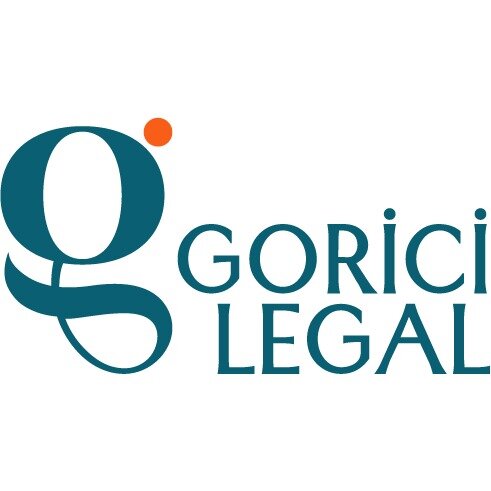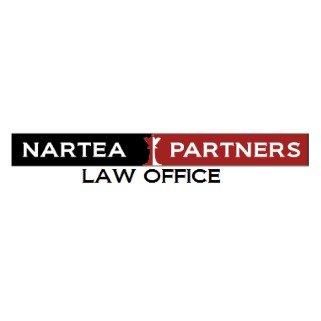Best Employer Lawyers in Romania
Share your needs with us, get contacted by law firms.
Free. Takes 2 min.
Or refine your search by selecting a city:
List of the best lawyers in Romania
About Employer Law in Romania
In Romania, employer law is primarily governed by the Romanian Labor Code, which establishes the rights and obligations of employers and employees. It covers a wide range of topics including employment contracts, working conditions, employee benefits, and dispute resolution procedures. The Labor Code ensures that both parties are treated fairly and provides a legal framework for addressing any issues that may arise during the course of employment.
Why You May Need a Lawyer
There are several situations in which you may need legal help as an employer in Romania. Common scenarios include drafting employment contracts, managing employee terminations, navigating complex labor disputes, or ensuring compliance with employment regulations. Additionally, if you face legal claims from employees, such as allegations of wrongful termination or discrimination, having a lawyer can help you defend your business effectively. Lawyers can provide guidance on best practices to mitigate risks and avoid legal pitfalls.
Local Laws Overview
The Romanian Labor Code is the primary statute regulating employment relationships. Key aspects include:
- Employment Contracts: Must be in writing and include specific clauses about duties, salary, and contract duration.
- Working Hours and Leave: The standard working week is 40 hours, with overtime regulated. Employees are entitled to paid annual leave.
- Termination Procedures: There are strict guidelines regarding termination, including notice periods and severance pay.
- Health and Safety: Employers must ensure safe working conditions and provide necessary training and equipment.
- Non-Discrimination: Laws prohibit discrimination based on age, gender, race, religion, or other statuses.
Frequently Asked Questions
How can I legally terminate an employee?
Termination must follow the procedures outlined in the Labor Code, including providing a valid reason and respecting notice periods.
What are the minimum wage requirements?
The minimum wage is set by government regulation and varies based on the industry and role.
How do probationary periods work?
Probationary periods are allowed and can last up to 90 days for regular employees and 120 days for managerial positions.
Can I employ someone on a freelance basis?
Yes, but clear contracts must distinguish between freelancers and employees to avoid reclassification issues.
What are the mandatory employee benefits?
Benefits include paid leave, social security contributions, and in some cases, additional health insurance or transportation aid.
Can I require overtime work?
Overtime is permitted but must be agreed upon in advance and comes with higher pay or compensatory time off.
What steps should I take to ensure workplace safety?
Conduct risk assessments, provide safety training, and supply necessary protective equipment.
How should employment disputes be handled?
Many disputes are resolved via mediation or arbitration before escalating to the courts.
Is it necessary to have an employee handbook?
While not mandatory, having a handbook is highly advisable to outline company policies and expectations clearly.
Do employment contracts need to be in Romanian?
Yes, contracts should be in Romanian, although translations can be provided for foreign employees.
Additional Resources
To seek further assistance, consider the following resources:
- Ministry of Labor and Social Justice
- National Employment Agency
- Trade unions and employer associations
- Professional organizations such as the Romanian Chamber of Commerce and Industry
Next Steps
If you require legal assistance regarding employment issues in Romania, start by consulting with a lawyer who specializes in labor law. They can guide you through the complexities of Romanian regulations and help protect your business interests. Additionally, ensure that all your employment practices are in compliance with current laws by regularly reviewing your policies and procedures.
Lawzana helps you find the best lawyers and law firms in Romania through a curated and pre-screened list of qualified legal professionals. Our platform offers rankings and detailed profiles of attorneys and law firms, allowing you to compare based on practice areas, including Employer, experience, and client feedback.
Each profile includes a description of the firm's areas of practice, client reviews, team members and partners, year of establishment, spoken languages, office locations, contact information, social media presence, and any published articles or resources. Most firms on our platform speak English and are experienced in both local and international legal matters.
Get a quote from top-rated law firms in Romania — quickly, securely, and without unnecessary hassle.
Disclaimer:
The information provided on this page is for general informational purposes only and does not constitute legal advice. While we strive to ensure the accuracy and relevance of the content, legal information may change over time, and interpretations of the law can vary. You should always consult with a qualified legal professional for advice specific to your situation.
We disclaim all liability for actions taken or not taken based on the content of this page. If you believe any information is incorrect or outdated, please contact us, and we will review and update it where appropriate.
Browse employer law firms by city in Romania
Refine your search by selecting a city.

















